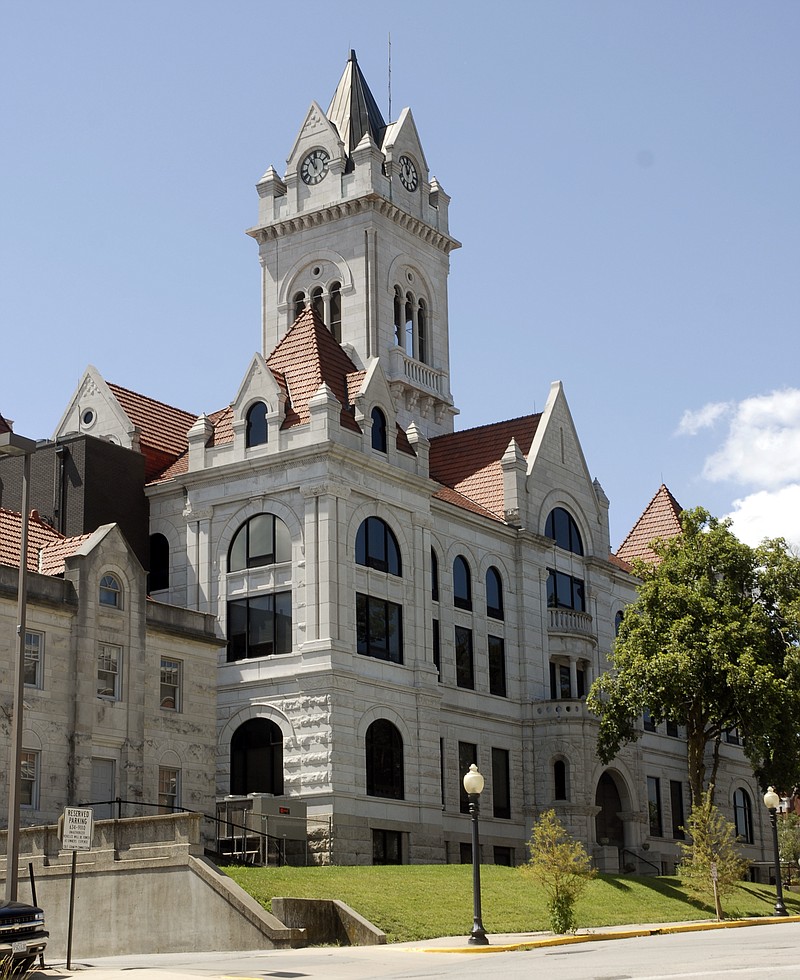As some COVID-19 precautions begin to ease, operations at the Cole County Courthouse will be changing next week. But the public should notice very little difference to what is currently being done, judicial officials said Friday.
Given increased accessibility to approved COVID-19 vaccines, the Missouri Supreme Court revised its operational directives in March to further guide courts statewide in remaining open while ensuring the safety of their employees and the public.
Local courts may operate in one of four operating phases, each reflecting differing approaches to in-person proceedings, personnel and staffing, and courthouse operations.
In February, the Cole County Courthouse moved to Phase 3 operating status, where courts can resume criminal jury trials while in compliance with local social-distancing protocols and occupancy limits.
Now, Presiding Judge Jon Beetem said he expects the courthouse to go to Phase 4, which means operations continue precautionary measures when interacting with the public while easing such restrictions among court personnel.
Regardless of their vaccination status, all individuals will continue to be required to follow social-distancing protocols and wear masks or face coverings in court proceedings and in public areas of the courthouse.
"We'll probably quit temperature screenings for people coming in, except for juries," Beetem said. "We will probably also limit the number of COVID questions we ask people as they enter the building. We're at a point now in the county that if you want to get vaccinated, you can get vaccinated."
Beetem said he thought the Centers for Disease Control would have to change its recommendations on indoor mask wearing before the courts will.
Beetem also believes more people are not as worried about COVID exposure at the courthouse due to the precautions that have been taken. He noted 87 out of 90 people called to be on the jury panel for this past week's James Addie murder trial appeared for jury selection.
"I think Cole County residents, as always, have been responsible, have been responsive and appreciate the protections that we do," Beetem said.
That's good news for the judges because there is a backlog of cases involving violent crimes waiting to potentially go to trial because those proceedings couldn't be held for several months last year due to the pandemic.
In his court, Beetem said he currently has 18 people in jail awaiting possible trial for cases of murder, robbery or first-degree assault. He also has 23 people on pre-trial release facing those same charges.
"I'm fighting to get trials set, Beetem said. "I have a potential murder trial in December, but I'm also sitting on three civil trials. I'm telling people involved in those trials that you are in a time frame where we could have to do a criminal trial, so your case may not go because I have people in custody that have to be done."
Beetem said they have taken measures to achieve the goal of reducing the amount of time a person has to sit in the courthouse waiting for their proceeding to take place. That way, if there is any COVID exposure in the courthouse, they have reduced the public's time and chances to exposure.
Those ways include having video kiosks on the ground floor so people can look up their cases and potentially get information they need without having to go up to other floors of the courthouse. They've also eased procedures so people needing to file paperwork on some cases can do so via fax or internet without having to come to the courthouse.
"When we do eventually get back to a time where we have no COVID restrictions, I think you'll see that people are more accepting of some of the things we have implemented during the pandemic, such as the use of video," Beetem said.
"For the last three or four years, I've been trying to get juveniles in residential facilities to appear via video of some form, and I was sending them to courthouses wherever they were located," he said. "That had been resisted. But after COVID hit, it became more accepted, and I think it will stay that way. I also intend to use video in more civil cases. I've tried several divorces via video with people living in other states."

